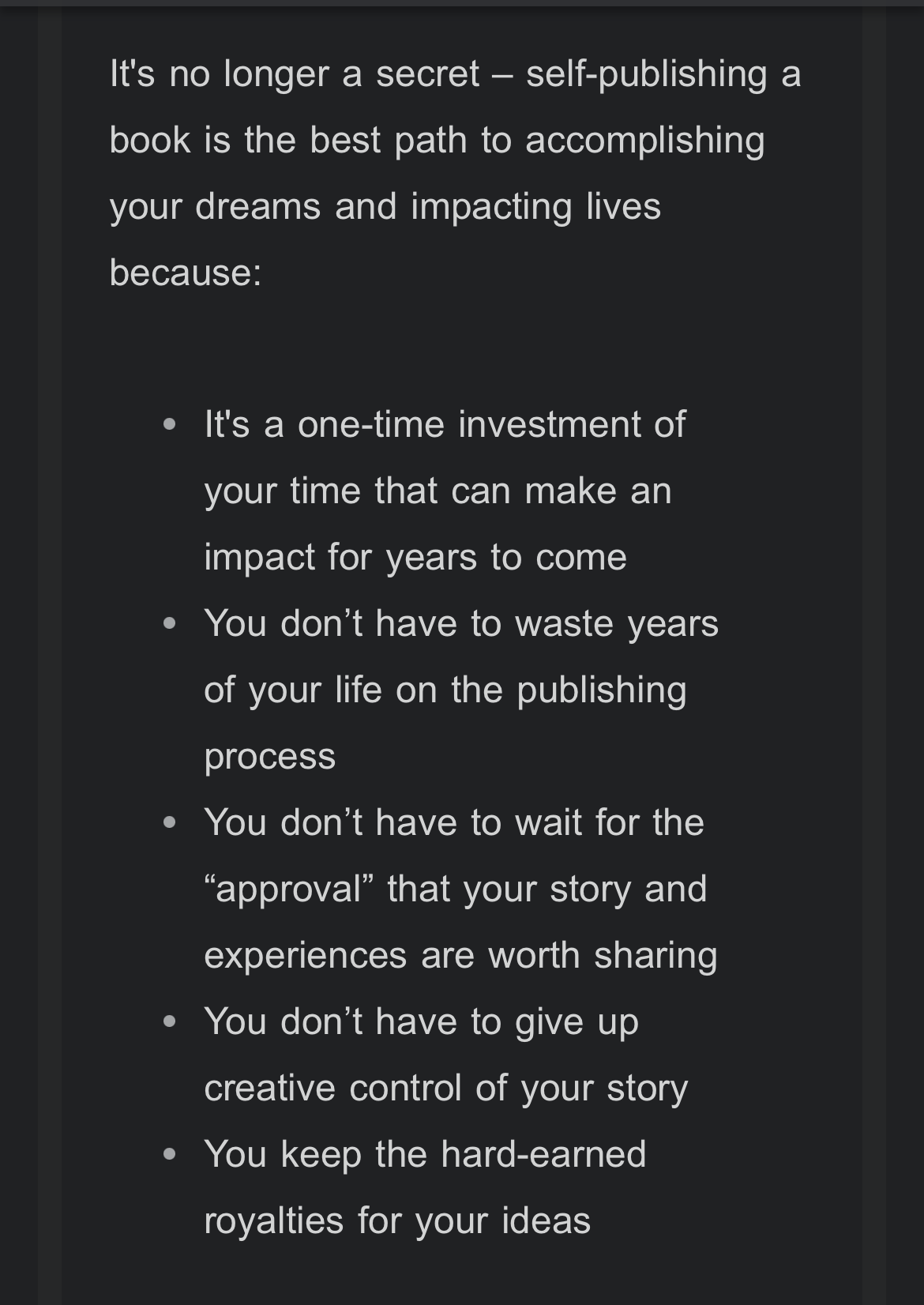I feel I should preface this post with the disclaimer that, while I am admittedly somewhat biased toward self-publishing, there is no single “correct” way to go about getting a book published. This is not meant to categorize any particular method as “good” or “bad.” I simply want to share my personal reasoning for choosing the self-publishing route. In the next day or two, keep an eye out for a follow-up post on why you should be reading self-pubbed books!
In the beginning…
When I first decided to take the plunge in early 2014 and self-publish, Dakiti and Nexus were already complete and the outline for Ronan was well underway. In other words, it struck me that I was sitting on two finished novel-length stories, had a third on the way, and had nothing whatsoever to show for all the work I’d put in. At that point, there were only three or four people on the face of the planet who’d read anything I’d written, mainly because I was petrified by the prospect of anyone seeing my work. But at the same time, I had created this story and this world and these characters that I thought were pretty cool, and I figured the best way to share all of these things with new people—and maybe get a little credit for doing so—was to self-publish.
Sharing is caring
So that was ultimately my original goal: to share my work with others. And really, that’s probably the starting goal for just about any author, regardless of the publication model they intend to use. I don’t think it ever even crossed my mind that I should try to pursue an agent or a traditional deal. I figured why waste time doing that and potentially get nowhere when I can self-pub and make my work available immediately? Fame and fortune certainly weren’t priorities, so self-pubbing seemed like the way to go.
That’s not to say self-publishing should be automatically treated as the Quick and Easy™ route. Yes, it’s faster than traditional publishing, and in some respects, it’s also easier. But I’ve learned a LOT in the last 9 years, including the plethora of reasons why it’s not just “quick and easy.”
The forgotten (or avoided?) path
Over the years, I’ve seen a number of social media posts from aspiring authors who are in the process of querying agents. They’ll express excitement and say something like, “I sure hope I get to share my book with the world.” Or a writer who has endured multiple rejections will worry, “What if I never get to share my story with everyone?” Or an author who did manage to land a deal with an agent will say, “If my first book doesn’t sell well, I won’t get to write the sequel.”
It’s the word “get” that really strikes me in those types of comments. You get to share your story. You get to write another book. My default response is, “What on EARTH is stopping you from doing any of those things anyway?” There’s absolutely nothing wrong with pursuing a traditional publishing deal if that’s your dream, but when I see someone coming off their 15th rejection lamenting the idea of potentially never “getting” to share their story, I’m…confused, to say the least. They talk as though a trad deal is the only path to publishing. I’m not sure if it’s because
they’re simply unfamiliar with just how big the self-pub industry has gotten and don’t realize what their options are
they still buy in to the stigma around self-pub and they think going that route means their work wasn’t “good enough” to make it big time
some combination of the two
Self-publishing is a completely viable option in this day and age, and with it, you’re guaranteed to be able to share your work, write your sequel, and whatever else you want. This image here on the right is a snippet from an email I received from IngramSpark a few weeks ago regarding an upcoming self-publishing webinar. The third bullet point really resonated with me; when you choose to self-pub, it means your publishing journey isn’t reliant on anyone else’s say-so. If you’re a trad pub hopeful who’s suffered through multiple rejections, it’s not necessarily because your work isn’t good enough; deals like that are just based so heavily on the current state of the market and industry, so demand is variable. You might have a great manuscript but some publisher simply decides it’s not going to sell well.
The point is, if you want your book out there, you have the power to make it happen yourself if you so choose.
my motives
Along with the desire to share my work and to do so on my own terms, there’s an ever-growing list of other reasons I’ve been so happy with my decision to self-publish.
control over story
Like the IngramSpark email mentioned, you get to retain creative control of not only the story itself but other design aspects as well. I’ve often heard of traditionally published authors whose editors or agents asked them to completely change a character’s development arc or add/remove some other element from the story in order to fit the market. When you self-publish, you get to tell the story you want to tell no matter what. Granted, if your beta readers point out a plot hole or some other logistical issue, you should probably listen to them. But that’s a whole different matter than being forced to rework your story based on what someone else wants.
Control over cosmetics
Personally, I also do all my own cover art and formatting, so I also have complete control over how those things look. I know a number of other self-pub authors who do all their own design work as well. Based on what I’ve seen, it seems like some trad pub authors maybe have a little more say in cover art these days, depending on the particular publisher, but not a lot. If you self-pub, even if you hire out for cover design and formatting, you have a lot more freedom to work with the artist and develop the look you want.
Control over Schedule
No deadlines except the ones you set yourself. Need I say more?
control over Distribution
You can personally oversee the distribution of your work. You can choose whether to stay exclusive to Amazon, which has its own perks, or make your work widely available across a variety of retailers. After spending a few years doing the former, I now do the latter (so you also have the freedom to change!). Rather than have a publisher tell you they’re doing a limited run of X number of book copies in a certain country, you can distribute an unlimited number of copies worldwide (or at least to whichever countries a given publishing platform has available). Amazon of course has a number of worldwide markets, and third-party distributors like Draft2Digital can make your work available at a ton of smaller international retailers as well as library systems. In terms of self-pubbed physical books, print-on-demand services can certainly have their glitches, but there’s something to be said about not being restricted by a publisher’s print run and having to cross your fingers that all the copies sell.
Control over changes
When you have control over all your book files—both for ebooks and physical books—for distribution, you also have the freedom to make any changes to those files whenever you want/need to. You can fix the odd typo you might have missed previously. You can update your front or back matter. You can add new features—I fairly recently updated all my ebooks with an image of my galaxy map for reader reference.
control over pricing
This one is big for me. Every morning when I look through the daily BookBub newsletter, I see an ebook from a big-name trad pub author that’s been discounted to $1.99 or so from its regular list price of $14.99 or something outrageous. I always wonder if anybody actually buys ebooks at those prices, and personally I can’t imagine charging that much. But the author has no say whatsoever in that price; it’s set by the publisher. With self-publishing, you get to control prices at all your distributors, as well as set discounts when and how you want. With physical books, you do have to at least set your prices high enough to cover the distributor’s printing costs, but then it’s just a matter of choosing a price that provides you with your desired royalty. I like to choose prices that allow me to make a profit—even if it’s a small one—while keeping the books as affordable as possible for readers.
Royalties
This one sadly doesn’t apply as strongly to me, but self-publishing can be extremely profitable, and it has been for many, many authors. It’s much more than just a get-rich-quick scheme, and unfortunately there’s a lot of luck involved when it comes to how much success each individual author will see. But the Alliance of Independent Authors (ALLi) recently conducted a survey that found that on the whole, self-pub authors are now making more money than trad pub authors. With self-publishing, you continuously bring in royalties as you make sales, rather than having your traditional publisher cut you a couple of checks for fixed amounts. Most of the distribution platforms have pretty high royalty percentages, too. Amazon’s is 70% for ebooks priced $2.99 and higher (35% otherwise) while Barnes and Noble’s is 70% regardless of the book price. Royalty rates for print books aren’t as great, and you definitely have to set your prices higher to make a decent profit, but still. If you’ve got a $5 ebook you sell 100 copies of and you’re making 70% off each sale (minus a few cents for file delivery costs), that’s already a solid chunk of change.
You can learn more about the results of the ALLi income survey HERE.
In the end…
Self-publishing isn’t for everyone, and like I said, there’s absolutely nothing wrong with endeavoring to go the traditional route if that’s what you want to do. But I sure wish people would stop treating that like the only “real” form of publishing. If you’re looking to publish a book and you like the sound of having total control over the process, I invite you to consider self-publishing.
The jump from 2018 to 2019 was when I left Amazon exclusivity and went wide
Personally, I don’t make a lot of money publishing; my earnings have actually fluctuated wildly from year to year depending on new releases, promotions I’ve run, and a dozen other factors. While it would sure be nice to make more money, I’m ultimately still in this business for the purpose of sharing my stories with people. I’m glad to have a good day job that provides a steady source of income, even if it means I don’t have as much time to write. But just look at the results of that ALLi survey and you can see the proof that there are plenty of other self-published authors out there who are more successful.
Despite not earning a lot, and despite the fact that literally every single reason I choose to self-publish results in more work required on my part, I wouldn’t have it any other way. I’d much rather put in that extra work to ensure everything looks and feels the way I want—to ensure readers experience the story exactly how I want to tell it—than leave those things in anyone else’s hands.
If you’re a fellow self-published author, tell me why you’ve chosen the self-pub journey!










